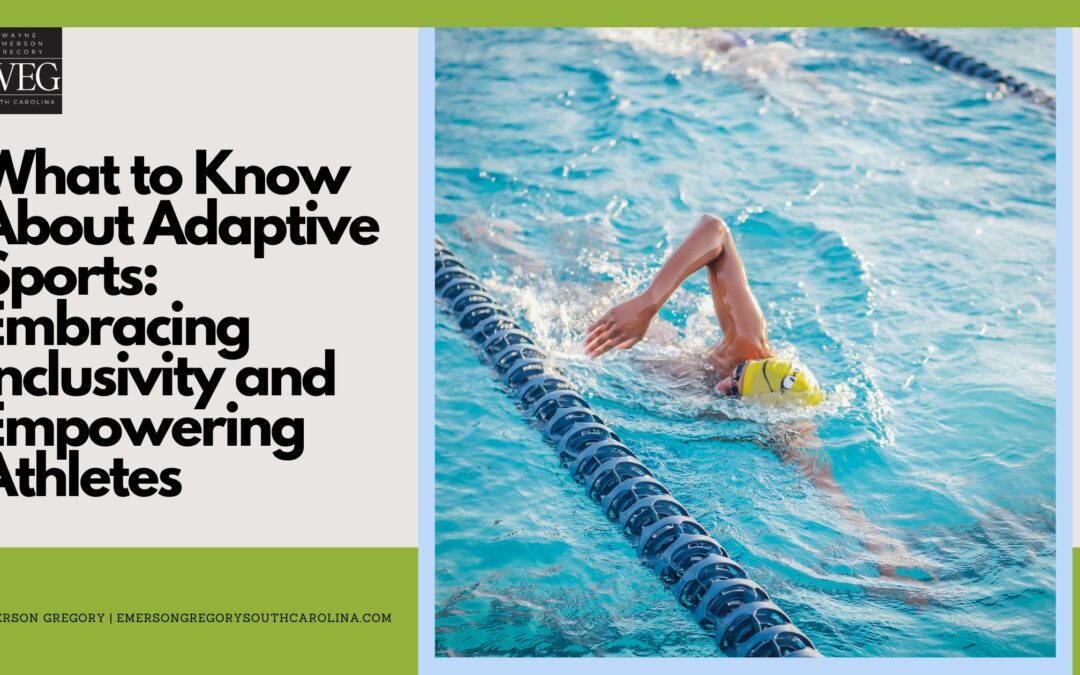We celebrate sports’ ability to inspire, unite, and challenge individuals. While traditional sports have garnered immense popularity, it’s crucial to recognize and embrace adaptive sports. Adaptive sports allow individuals with disabilities to engage in physical activities, promoting inclusivity and empowering athletes to showcase their skills and determination. In this blog, we will explore the world of adaptive sports, highlighting their importance, benefits, and critical considerations to keep in mind.
Understanding Adaptive Sports
Adaptive sports are athletic activities specifically designed for individuals with disabilities. These sports provide adaptations or modifications to accommodate various impairments, allowing athletes to participate and compete on equal footing. From wheelchair basketball and seated volleyball to para swimming and para-cycling, the range of adaptive sports is diverse and ever-expanding.
Promoting Inclusivity
One of the primary objectives of adaptive sports is to foster inclusivity. These sports create opportunities for individuals with disabilities to actively engage in physical activities actively, breaking down barriers and challenging societal perceptions. By emphasizing the abilities and talents of athletes, adaptive sports help reshape perceptions of disability, promoting a more inclusive and accepting society.
Empowering Athletes
Participation in adaptive sports has a transformative impact on athletes. It empowers individuals, instilling a sense of self-confidence, resilience, and determination. Adaptive sports provide a platform for athletes to challenge themselves, set and achieve goals, and develop a strong sense of community. These athletes become role models through their accomplishments, inspiring others to overcome challenges and pursue their dreams despite their limitations.
Health and Well-being Benefits
Engaging in adaptive sports offers numerous physical and mental health benefits. Regular physical activity improves cardiovascular fitness, muscular strength, and flexibility, contributing to overall well-being. It also aids in weight management and bone density and reduces the risk of chronic conditions. Beyond the physical aspects, adaptive sports provide an avenue for social interaction, fostering friendships and connections with fellow athletes and supporters. The camaraderie and support networks within adaptive sports communities contribute to positive mental health outcomes, including increased self-esteem and reduced feelings of isolation.
Key Considerations
When exploring adaptive sports, it’s essential to consider a few key factors. First and foremost, athletes should consult with healthcare professionals to ensure they engage in activities appropriate for their individual needs and abilities. Accessibility and adaptive equipment should also be considered, ensuring that sports facilities and equipment meet the necessary standards. Support systems, such as trained coaches and mentors, are vital in guiding athletes through their sporting journey.
Adaptive Sports Are:
- An invaluable aspect of the sporting world.
- Promoting inclusivity.
- Empowering athletes.
- Enhancing physical and mental well-being.
By embracing adaptive sports, society can shift towards a more inclusive mindset and provide opportunities for individuals with disabilities to showcase their talents. Let us celebrate the indomitable spirit of adaptive sports and create a world where every athlete, regardless of ability, is welcomed and celebrated.

